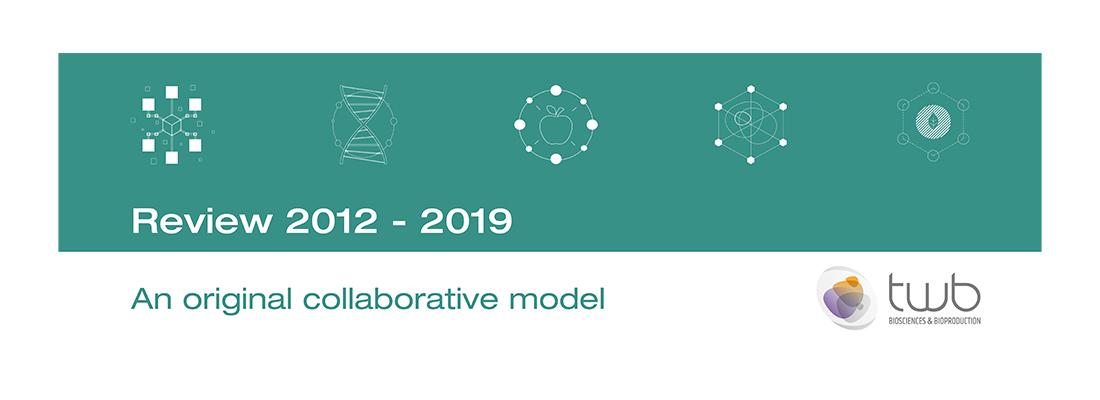Bioeconomy Reading time 2 min
Review 2012 -2019 of Toulouse White Biotechnology demonstrator
Published on 17 August 2020

Expert in steering scientific projects, TWB contributes to the development of new sustainable production pathways by providing innovative and economically sound alternative biological solutions. In order to accelerate the transition towards an eco-responsible industry, TWB has drawn on collective intelligence to drive pioneering links between researchers, industrial groups and investors. By fostering worthwhile, practical and innovative research, TWB meets a two-fold challenge: to effectively address the issue of climate change whilst creating economic value.
Since the creation of TWB (2012), under the triple supervision of INRAE, INSA and CNRS, and, as of the 1st January 2020 strengthened by 52 partners; (industrial groups, start-ups, investors, research bodies, local and regional authorities, etc.); TWB has contributed to the launch of 184 collaborative research and development projects and to the growth of numerous start-ups which in total have raised more than 100M€.
“TWB is a collective effort that draws its strength from its dedicated staff members and its network of committed stakeholders who all, on their own individual level, champion the roll-out of industrial biotechnology”, Olivier Rolland, Managing Director of TWB
The hallmarks of this model are:
- a flourishing public/private ecosystem that brings together all the stakeholders involved in the economic value chain (start-ups, small, medium and intermediate-sized enterprises, large groups, investors, research development bodies, research and/or higher education organisations, and local authorities), supported by a strong brand;
- a consortium agreement that simplifies and therefore facilitates the contractual relationships between public research laboratories and industrial companies, while focusing on collective intelligence and efficiency to accelerate the development of R&D projects;
- technology platforms equipped with highly automated, cutting-edge facilities, along a continuum of knowledge from gene to product, to provide alternative, innovative and sustainable biological solutions, intertwined with an ethical and responsible approach.
Key figures
In late 2019:
- 50 members, 34 of which were companies, form TWB public/private consortium;
- 184 R&D projects have been conducted by TWB including 128 industrial contracts, 32 frontier research projects and 24 co-funded projects;
- 7 start-ups have been hosted and supported by TWB from their very beginning, enabling them to get started and grow more quickly;
- 82 people, plus 40 staff members from the hosted start-ups, work at TWB premises;
- Industrial contracts worth almost €40m have been signed since 2012, which equates to 60% of the funding for TWB each year, complementing the State grants received.
The origins of TWB
TWB is the product of the ground-breaking ideas of Pierre Monsan, the early support of INRAE, followed by the other two founding supervisory bodies (INSA Toulouse and the CNRS), and funding from the SGPI (French general secretariat for investment) and the ANR (French national research agency), and the founding members of the consortium, both public and private. website
